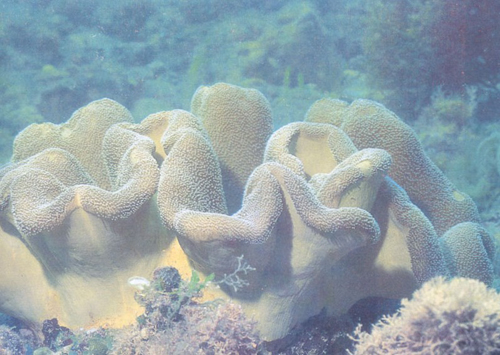Coral Reefs

The 14th of November, also known as Bal Divas, is the birthday of Chacha Nehru–our first Prime Minister and to put it in the current context–Rahul Gandhi’s great grand father. Continuity, complexity of relationships and interrelatedness to the web of life is the celebration.
A beautifully done film festival called CMS Vatavaran recently reflected it. One film of particular appeal was a Japanese one titled Kishke filming complex environmental issues with a very simple narrative. At the very first level, it is the story of a little boy named Kishke–about 10 years of age–who has just lost his grandfather. Once when had spent a summer with his grandfather on the sea coast village in North Japan, he had made a promise to his grandfather that he will plant a seed in his name, when he is no more. He now lived with his mother in Tokyo and has just had a summer break. Before the school closed for the break, he learns about the various environmental problems that cities in Japan have faced since 50’s due to industrial pollution, smog, water pollution, mercury poisoning, etc.
Very subtly, the film comments on the present. When Kishke walks back to his house in an apartment block, the backdrop is that of factories letting out white smoke. He lives with his mother alone, as his parents have separated and are on the verge of divorce. He spends many an evenings alone as his mother is coping with this stress by drinking. He is shown to buy his own food from the nearby restaurant and misses the family, when he sees his classmate out with his parents. Each frame is well thought of. Multiple and complex interpretations are possible and it is left for the audience to use their imagination.
He fulfills the promise he made to his grandfather. He takes his pocket money and travels alone to the same island. He has to take a train, a flight and a bus to reach it and even gets lost once. He is helped on the way by strangers who are only inspired by his commitment. He is not irresponsible or running away, just committed to the cause. On the way, he inspires others equally committed to the cause of saving the planet. A woman marketing executive in a chop stick manufacturing company in her thirties wanting to market reusable and eco-friendly chop sticks. An environmental activist, in his 50s, who has successfully enrolled villagers to clean up the beaches, and village council to treat the waste harmful to sea creatures. Finally, there is a Professor of Oceanography in his 70s, with an assistant in his thirties studying the coral reefs. Kishke succeeds in not only finding the seed and planting it but also becomes cause in the matter of bringing his parents to communicate with each other.
The film is very creatively produced with layers upon layers of interpretations in each frame. The final one that I am most inspired is about Coral Reefs that are multi-coloured when alive and get bleached when dead. Its parallel to human institutions that we create to sustain ourselves–leading to our complex multi-coloured cultures–is uncanny. Losing out on our institution of marriage and family and the impact it will have on our society in the long run is a parallel to the bleached and dead reefs.
Image Source




Beautiful